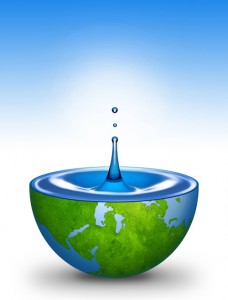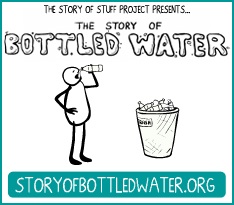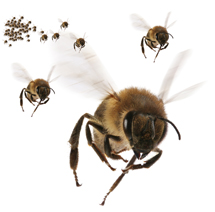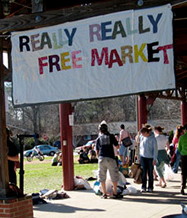Water privatization in China: New publication
Water privatization in China: New publication in German: Wasser auf Abwegen. Die Privatisierung der Wasserversorgung in China auf dem Pruefstand. It can be ordered by e-mail: vertrieb at asienhaus.de.
Water privatization in China: New publication in German: Wasser auf Abwegen. Die Privatisierung der Wasserversorgung in China auf dem Pruefstand. It can be ordered by e-mail: vertrieb at asienhaus.de.
 Monday March 22 is World Water Day. To mark the day, TVO Canada, Ontario’s public educational media organization, will air a week of water-themed programming featuring the world premiere of the Canadian documentary Water on the Table on March 24, 2010 (written, directed and produced by Liz Marshall), and encores of films that examine political, economic and environmental issues dealing with water quality and availability.
Monday March 22 is World Water Day. To mark the day, TVO Canada, Ontario’s public educational media organization, will air a week of water-themed programming featuring the world premiere of the Canadian documentary Water on the Table on March 24, 2010 (written, directed and produced by Liz Marshall), and encores of films that examine political, economic and environmental issues dealing with water quality and availability.
Read more | ›››

The Story of Bottled Water, releasing March 22, 2010, employs the Story of Stuff style to tell the fast-paced, fact-filled story of manufactured demand—how you get Americans to buy more than half a billion bottles of water every week when it already flows from the tap. Over five minutes, the film explores the bottled water industry’s attacks on tap water and its use of seductive, environmental-themed advertising to cover up the mountains of plastic waste it produces. The film concludes with a call to take back the tap, not only by making a personal commitment to avoid bottled water, but by supporting investments in clean, available tap water for all.
 Whopools.net is a open source online tool to share resources, knowledge, experiences, infrastructure and things with others. For instance: Wood to build shelves (or sth. else), a saw, or a sewing machine, drill press, videos, music, books, a car, computers with the possibility of printing, etc. in your local neighbourhood.
Whopools.net is a open source online tool to share resources, knowledge, experiences, infrastructure and things with others. For instance: Wood to build shelves (or sth. else), a saw, or a sewing machine, drill press, videos, music, books, a car, computers with the possibility of printing, etc. in your local neighbourhood.
At Whopools.net, you can also share skills, talents or special knowledge.
Read more about whopools.net
 After several decades of relentless neoliberal enclosures, the idea of ‘commons’ is enjoying a renaissance amongst some neo-Keynesian economists and commentators, while political scientist Elinor Ostrom has just been award the Nobel prize ‘for her analysis of economic governance, especially the commons’. Massimo De Angelis explains why capital’s commons will always be distorted – because they are based upon social injustice – and why we can only reclaim the commons from capital by constructing common interests. Read more about the tragedy of the capitalist commons
After several decades of relentless neoliberal enclosures, the idea of ‘commons’ is enjoying a renaissance amongst some neo-Keynesian economists and commentators, while political scientist Elinor Ostrom has just been award the Nobel prize ‘for her analysis of economic governance, especially the commons’. Massimo De Angelis explains why capital’s commons will always be distorted – because they are based upon social injustice – and why we can only reclaim the commons from capital by constructing common interests. Read more about the tragedy of the capitalist commons
If the cell form of capitalism is the commodity, the cellular form of a society beyond capital is the common. Nick Dyer-Witheford discusses the circulation of commons and the conditions they would create for new collective projects and waves of organising. Read more about Commonism
 According to the capitalist lexicon, the “Free Market” is the economic system in which prices are determined by unrestricted competition between privately owned businesses. Any sensible person can recognize immediately that neither human beings nor resources are free in such a system; hence, a “Really Really Free Market” is a market that operates according to gift economics, in which nothing is for sale and the only rule is share and share alike. In the interest of not taxing the reader’s patience, a single apostrophe stands in for the two “Really”s throughout this text. Read more
According to the capitalist lexicon, the “Free Market” is the economic system in which prices are determined by unrestricted competition between privately owned businesses. Any sensible person can recognize immediately that neither human beings nor resources are free in such a system; hence, a “Really Really Free Market” is a market that operates according to gift economics, in which nothing is for sale and the only rule is share and share alike. In the interest of not taxing the reader’s patience, a single apostrophe stands in for the two “Really”s throughout this text. Read more